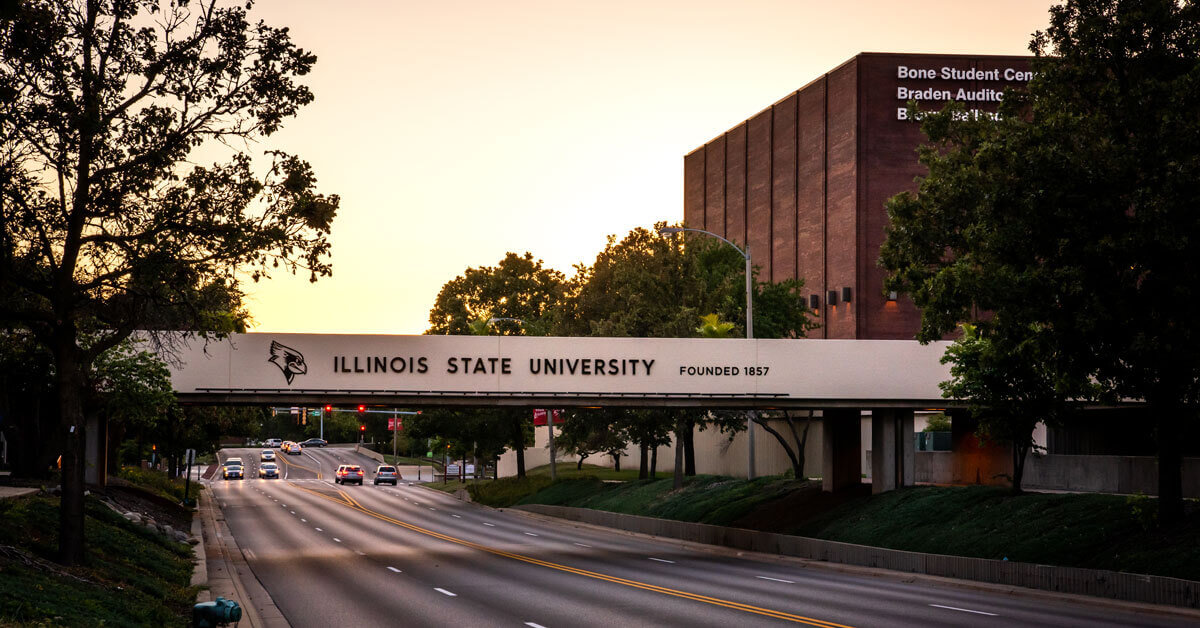ISU Students Work to End Rape Culture by Taking Back The Night
Written by Colleen Holden on October 12, 2023
Image Courtesy of Students Ending Rape Culture Instagram
NORMAL, Ill. – According to the #MeToo movement’s official website, nearly 60 percent of collegiate women are sexually assaulted or harassed on their college campuses. One registered student organization here at ISU has had enough.
Becca Mackey is the president of the RSO “Students Ending Rape Culture”. Through this organization, students are not only able to learn about and fight against rape culture but can turn their pain into passion by taking back their clothing, their confidence and most recently the night.
“Take Back the Night” was a campus-wide event in partnership with the Women’s Gender and Sexuality Studies program. Participants in the event made anti-rape culture signs and marched around campus in protest of societal norms and patterns that make them feel unsafe walking through their own campus alone at night.
“The name is very intentional,” Mackey said. “It was for women to come together and make signs and do chants saying that they deserve to feel safe walking in the night.”
SERC has only been doing this event for a few years now, but “Take Back the Night” still has a rich history with ISU, dating back a few decades
“ISU was doing it a really long time ago, I want to say a couple of decades ago,” Mackey said. “The feminist coalition was doing it; it was really common on a lot of universities where feminist coalitions would pick it up in the 80’s and 90’s. And then it died. The feminist coalition didn’t exist anymore, so nobody was running it, and then it got brought back last year”
The hiatus caused by the dispersion of the feminist coalition was not enough to stifle student’s passion for fighting against the system. There was no shortage of passion-driven creative energy with the signs the participants made for the march.
“My favorite sign said, ‘don’t get raped’ on it, but she had crossed out the ‘d’ on raped and the word ‘get’ so it just said, ‘don’t rape,’” Mackey said.
There were a number of reasons why SERC decided to hold the event. The awareness and advocacy it brought are congruent with SERC’s overall mission, but some of the motives behind it were more about the effect on the protestors, than the effect of the protest.
“I hope that they realize that they have a community,” Mackey said. “It’s really valuable to learn that you’re not alone in your experiences, and that there are other people who fight for the same things you fight for.”
According to Mackey, SERC has gained significant momentum recently. Many more students, have heard of, are in support of, or are members of SERC than in previous years, making awareness of the existance of rape culture much more widespread than it once was. SERC was recently given a spot on the Student Government Association as ex-officio, a position for members of certain RSO’s on campus to provide representation and advocacy for select groups of underrepresented students.
“We’re still in the beginnings of where we want to be, but I think we’re accomplishing a lot,” Mackey said. “I think our campus is going to get a broader understanding of rape culture and sexual violence, and we’re going to have a larger group of people trying to fight against it in the coming years.”
SERC’s next big event will be the clothesline project; a display of T-shirts with phrases written by survivors of sexual violence that call out the harmful narratives surrounding and perpetuating rape culture.





